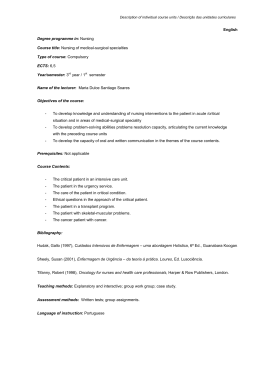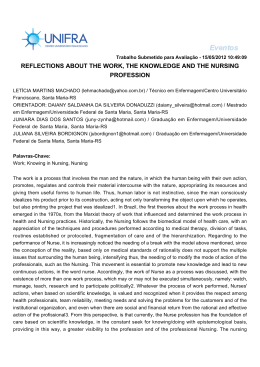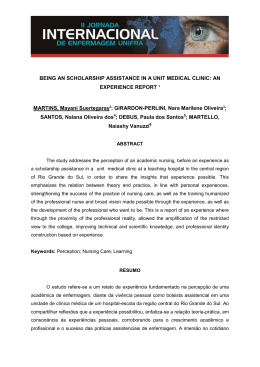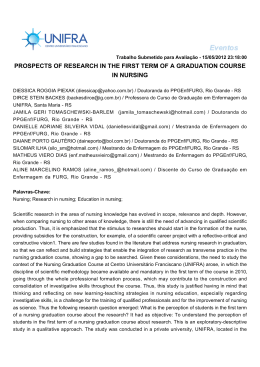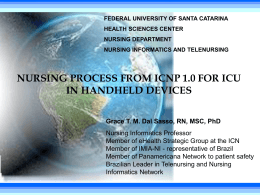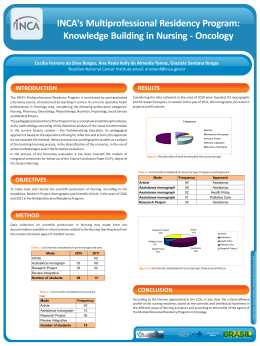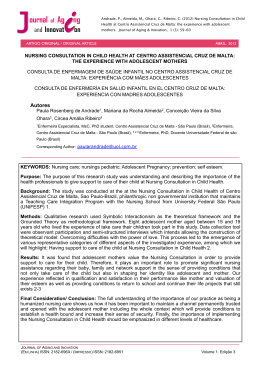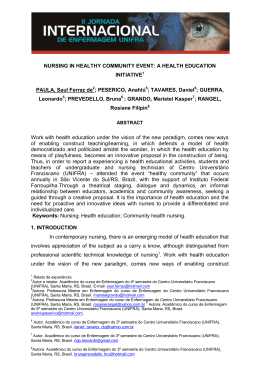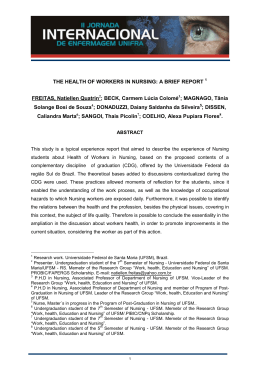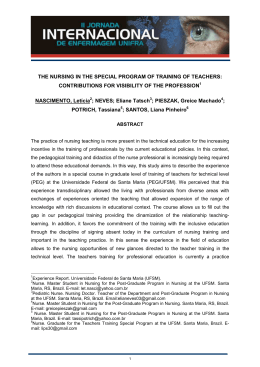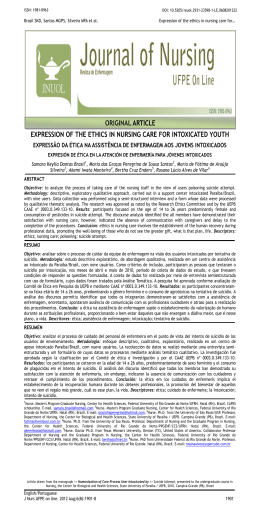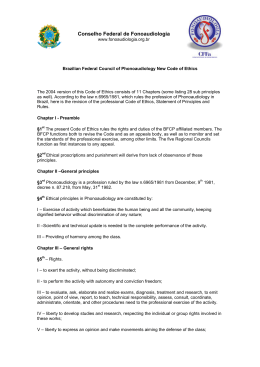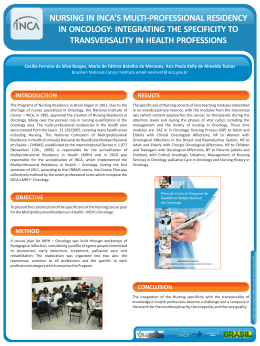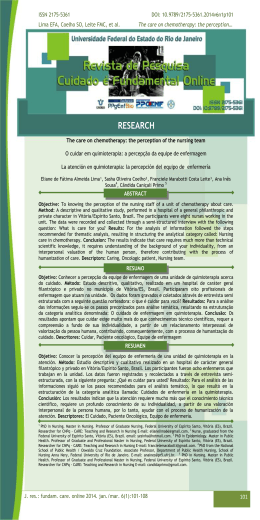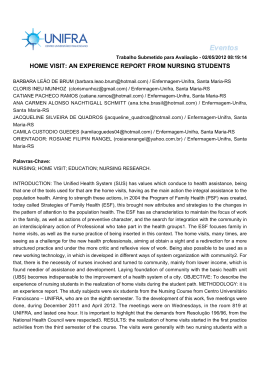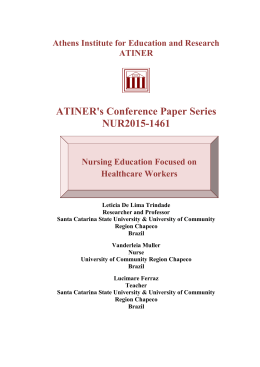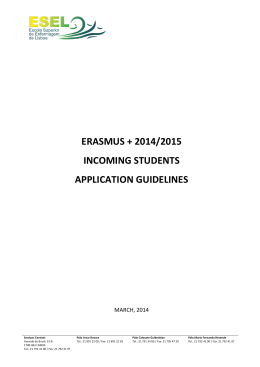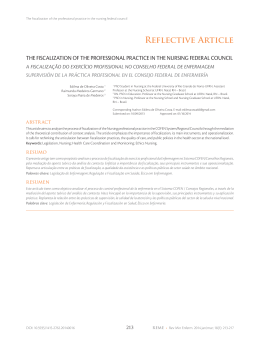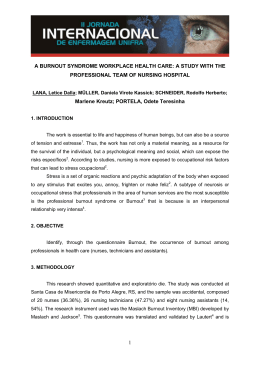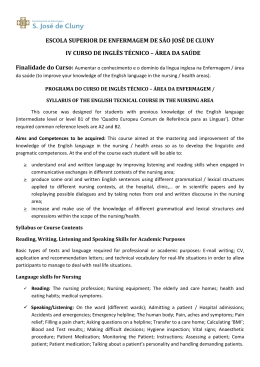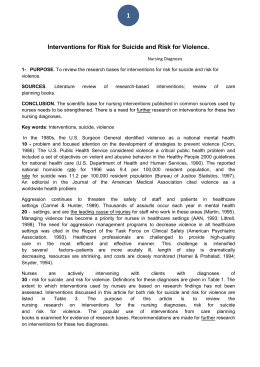EDITORIAL Ethics in Historical Research in Nursing and Health - Perspective to Scientific Integrity Ética na Pesquisa Histórica em Enfermagem e Saúde - Perspectiva à Integridade Científica Ética en Investigación Histórica en Enfermería y Salud - Perspectiva para la Integridad Científica Maria Angélica de Almeida PeresI, Tânia Cristina Franco SantosI I Ph.D. Universidade Federal do Rio de Janeiro. Anna Nery School of Nursing. Membro do Núcleo de Pesquisa de História da Enfermagem Brasileira. Rio de janeiro -RJ, Brazil. _______________________________________________________________________________________ How to cite this article: Peres MAA, Santos TCF. Ethics in Historical Research in Nursing and Health - Perspective to Scientific Integrity. Hist enferm Rev eletronica [Internet]. 2015;6(1):4-6. _______________________________________________________________________________________ Nursing Research's ethics of history holds the historiographical process, the communication of knowledge produced and the limits of this communication. Thinking of ethics in historical research also involves carrying out studies whose benefits can be reverted to society in social or academic terms. It is known that the development of research in Nursing History depends on the existence and quality of documentary sources. Therefore, efforts should be continued to protect the memory of the profession through recovery , preservation and production of historical sources . This ethical awareness allows studying the different historical moments of proper and responsible way without damaging the document, the symbolic goods left by the past and that are part of our present. The appropriate use of the historical document requires careful handling to avoid damage as well as the production of documents taking into account people involved with the historical fact that the document has inside. Therefore, the preservation of historical source is a legitimate act in respect of the past, that is supporting by the recognition of the close relationship between memory and professional identity and its constituted in ethical attitude of the researcher, through its responsibility for the transmission of symbolic goods to new generations. 4 Ethics in Historical Research in Nursing and Health - Perspective to Scientific Integrity The construction of consistent and erudite historical versions is possible when ethical guides the development of research especially in relation to data collection and use of historical sources. Thus, public and private collections consulted should be mentioned as well as the reference and authorization for consultation and disclosure of the sources used in the research. In advanced the New History, the possibilities of using sources for research in Nursing History was expanded, including photographs and oral testimony in the documentary corpus of studies which puts researchers on the ethical aspects of human beings both the image and the use of interviews for the production of oral source . Ethical considerations for using sources in historical research are ruled by law that should be known by researcher since it is responsibility of him not to cause embarrassment or reduce any types of risk that the research will provide. Even in the face of historical facts happened in a historical time, the use of oral sources requires greater care because it brings to researchers challenges of maintaining the anonymity of respondents, if that is their desire. It is an exception in circumstances of using oral sources belonging to collections previously authorized access and use. In this case should be asked to authorize the identification of the interviewee. If one is not granted, it is up to the researcher careful not to let the interviewee identifiable. When this is not possible, you should not use this source on the research. The limits of research in nursing history following the rights of people to have their picture preserved as well as the information provided by each person, including movies, photos, written and oral testimony. The research projects in the history of nursing accompanying ethical and legal aspects governing other research regardless of their classification are of minimal risk or low risk. In both cases, the project should include, when applicable, in according to the sources used information about the benefits and risks of research as well as the inform term of consent when it has the production of oral source. The ethical theme in nursing history research is very expansive that deserves further discussion since no exhaust in the use of research sources and extends to aspects of impact on the profession and its social actors . In addition, the plagiarism and self-plagiarism in nursing history research includes important ethical issues which often lead ahead misleading historical information reproduced by studies that have not search primary sources and use secondary sources to affirm positions and historical versions already submitted to the society. Hist enferm Rev eletronica [Internet]. 2015;6(1):4-6 5 Ethics in Historical Research in Nursing and Health - Perspective to Scientific Integrity Thus, we return to the beginning of this text when the preservation of physical collections and the original sources was cited as the main ethical attitude of nurses. It is important to highlight that the scanned document does not replace the original with so many to change what is scanned in programs for this purpose possibilities. Images, signatures and texts, when scanned , may change. For that reason it is required still keeps the original source. Ever more nursing is responsible for its history which includes ethical considerations in research and the hold of your document collection (written , iconographic , museum ) in multiple facets of physical and digital existence. Professional identity in constant transformation depends on the production of its history to the construction of a nursing increasingly aware and participatory in support human development. Hist enferm Rev eletronica [Internet]. 2015;6(1):4-6 6
Download
